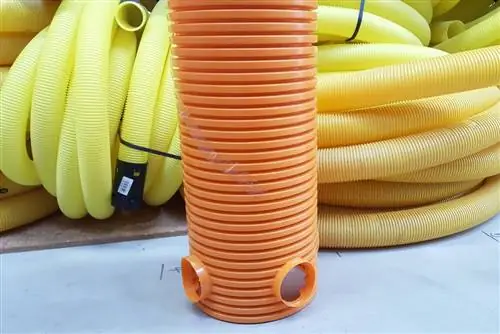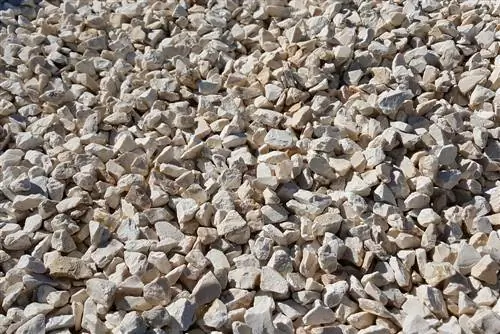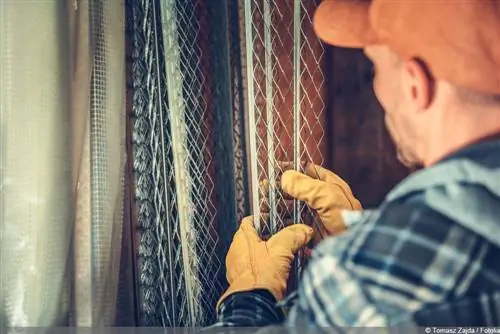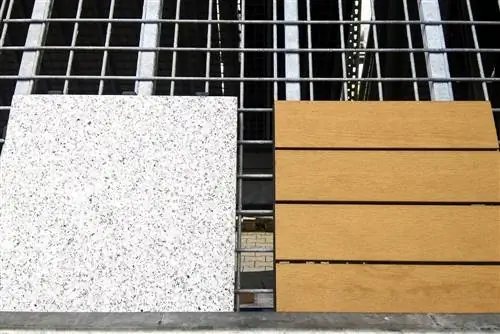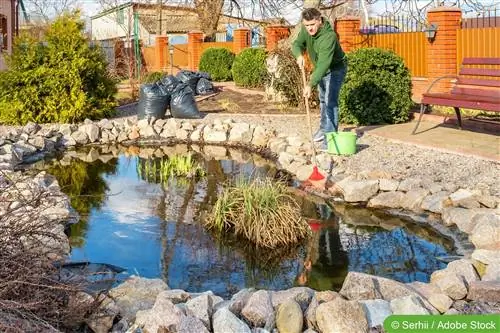- Author admin caroline@plants-knowledge.com.
- Public 2023-12-17 03:39.
- Last modified 2025-01-24 12:45.
If the drainage is blocked, the masonry can become wet very quickly. Mold and damage are the consequences. This is accompanied by expensive repairs and loss of value. Regular flushing and cleaning of the drainage system can prevent these problems and ensure that groundwater and topwater are kept away from the masonry. But how can the cleaning be carried out and how can the costs be kept low?
Tasks
The drainage system is intended to keep masonry dry and prevent flooding. It keeps high groundwater away and allows water to seep from the surface into the ground before it can build up and penetrate into the basement, for example. Drainage systems also fulfill important functions in fields and gardens and are intended to prevent high groundwater or heavy rainfall from washing away the soil and causing erosion. However, the drainage channels can only fulfill these tasks if they are not obstructed and blocked by dirt, deposits or ingrowing roots.
Risks
Drainage systems can be affected by a variety of factors. These include, among others:
Roots
Ingrowing roots can block the drainage channel and thus impair the flow. They can also damage the masonry and thus promote the penetration of water and cause subsequent costs.
Sand and siltation
Sand and mud can form a layer that allows comparatively little water to seep away. Even if deposits are inherently water-soluble and water-permeable substances, they can lead to congestion or even flooding.
More serious contamination
Larger dirt that has been washed in and washed in, such as stones, twigs and leaves, can block the drainage channels.
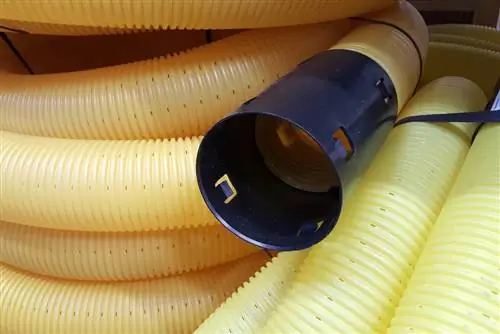
Climate Changes
Due to climate changes in recent years, extreme rainfall is occurring more frequently. When there is heavy rainfall, the larger masses of water generally have a harder time draining away. This is especially the case if the soil has previously had a hardened surface due to dryness and heat. This hinders seepage. The drainage system must therefore be more efficient and even small deposits can have a major impact.
Possible consequences
If irrigation and cleaning of the drainage are neglected, some unfavorable consequences can result. These include:
- damp masonry
- water penetration, especially in the basement
- Erosion of masonry
- increased risk of mold formation and associated he alth risks
- Damage to the walls, including indoors
- Damage to property, for example items stored in the basement
The value of the house may decrease, the basement may have to be drained and is no longer suitable for storing moisture-sensitive items. The consequences of a blocked drainage system can result in horrendous costs and significant losses. Therefore, regular cleaning should be carried out.
Professional drainage cleaning
Professional drainage cleaning involves inserting a hose into the drain that can withstand high-pressure water. Through openings on the front, back and sides, even harder deposits and dirt are whirled up and flushed out. The high pressure can even cut thin tree roots. In addition, the hoses can be used to flush up to 100 meters of the drainage channel in one go, reducing overall effort. This in turn benefits cost savings.
Keep costs down
Many people shy away from having their drainage cleaned professionally on a regular basis. However, you risk significantly higher bills if the water reaches the masonry or interior rooms and incurs enormous costs for draining and replacing property - and thus saves at the wrong end or in the medium and long term you even spend more money and risk a significant loss of value. It makes much more sense to prevent siltation and blockages as well as damage to the masonry and the drainage channel and thus actually be able to keep costs down.
We recommend following the following tips:
Conclude maintenance contract
A maintenance contract with a pipe and drain cleaning provider can save a lot of money in the long run. Checks, rinsing and cleaning are carried out professionally. The effort is minimal and damage is prevented.
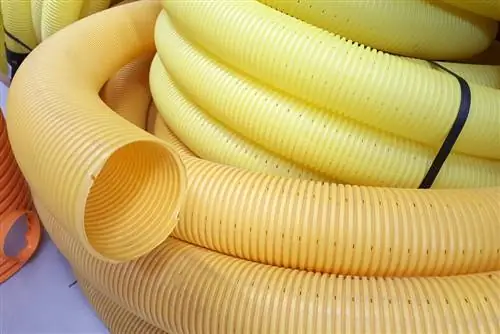
Keep short intervals
Regular maintenance and cleaning intervals not only prevent damage, they also reduce deposits and the effort required for cleaning. This in turn reduces the number of working hours required and thus the costs for flushing and cleaning operations.
Carry out checks
Frequent checks allow problems and obstacles to be noticed at an early stage and enable quick solutions. These are generally more cost-effective than advanced damage and involve less effort, fewer working hours and therefore lower costs.
Clean drainage channels yourself?
Cleaning the drainage system can also be done yourself, provided the appropriate equipment is available. As a rule, however, the investment is not worth it because the devices cost a lot and are only used comparatively rarely on your own property. A maintenance contract with a reputable company is therefore often a much better and overall cheaper choice. If you still want to try it yourself, you should learn how to do it from trained staff.

